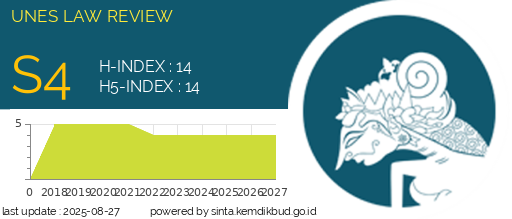Legal Protection for Consumers for Personal Data in the Use of Financial Technology
DOI:
https://doi.org/10.31933/unesrev.v6i4.2161Keywords:
Financial Technology; Consumer protection; Personal data.Abstract
Financial technology is a term that refers to the use of technology to improve and simplify financial services. Fintech includes a variety of applications, services, and products that use technology to provide more efficient, faster, and more accessible financial services for consumers and businesses. Although the Fintech business offers many benefits, its enactment also carries potential risks. The two major risks faced are consumer data security and transaction errors. The risk of data privacy security is that Fintech often relies on digital data, so cyber security and data privacy risks are a big concern, cases of hacking, identity theft, and data leaks can have a significant impact on consumers, while what is meant by the risk of transaction errors is that the majority of Fintech transactions are digitally conducted, technical errors or system failures can result in transaction errors, which can be detrimental to consumers or companies. These two risks can cause losses for all parties involved in the Fintech business. The emergence of online crimes, such as data interception, hacking, and cybercrime in financial transactions, has made people skeptical of online transactions. Legal protection for consumers' personal data is essential because personal data includes sensitive information to identify, track, or exploit individuals. Forms of legal protection related to fintech personal data are regulated in Minister of Communication and Information Regulation Number 20 of 2016 concerning the Protection of Personal Data in Electronic Systems, Financial Services Authority Regulation Number 13/POJK.02/2018 concerning Digital Financial Innovation, and Financial Services Authority Regulation Number 1/POJK. 07/2013 concerning Consumer Protection in the Financial Services Sector
Downloads
References
F. Margaretha, “DAMPAK ELECTRONIC BANKING TERHADAP KINERJA PERBANKAN INDONESIA,” Jurnal Keuangan dan Perbankan, vol. 19, no. 3, Dec. 2015, doi: 10.26905/jkdp.v19i3.49.
I. A. W. Chrismastianto, “Analisis SWOT Implementasi Tekonologi Finansial terhadap Kualitas Layanan Perbankan di Indonesia,” Jurnal Ekonomi dan Bisnis, vol. 20, no. 1, p. 137, Apr. 2017, doi: 10.24914/jeb.v20i1.641.
L. Abubakar and T. Handayani, “Financial Technology: Legal Challenges for Indonesia Financial Sector,” IOP Conf Ser Earth Environ Sci, vol. 175, p. 012204, Jul. 2018, doi: 10.1088/1755-1315/175/1/012204.
P. Soerjowinoto, Buku Pedoman Metode Penelitian Karya Hukum dan Skripsi. Semarang: Fakultas Hukum Unika Soegijapranata, 2006.
R. H. Sumitro, Metodologi Penelitian Hukum dan Jurimetri, 4th Print. Jakarta: Ghalia Indonesia, 1990.
Sulistyandari, “Fintech Indonesia User Legal Protection in Balance Borrowing Money Based on Information Technology,” SHS Web of Conferences, vol. 54, p. 06003, Nov. 2018, doi: 10.1051/shsconf/20185406003.
E. Warassih, “Peran Politik Hukum Dalam Pembangunan Nasional,” Gema Keadilan, vol. 5, no. 1, pp. 1–15, Oct. 2018, doi: 10.14710/gk.2018.3592.
S. Rahardjo, Ilmu Hukum, Cet. V. Bandung: Citra Aditya Bakti, 2000.
Downloads
Published
How to Cite
Issue
Section
License
Hak cipta :
Penulis yang mempublikasikan manuskripnya di jurnal ini menyetujui ketentuan berikut:
- Hak cipta pada setiap artikel adalah milik penulis.
- Penulis mengakui bahwa UNES Law Review berhak menjadi yang pertama menerbitkan dengan lisensi Creative Commons Attribution 4.0 International (Attribution 4.0 International CC BY 4.0) .
- Penulis dapat mengirimkan artikel secara terpisah, mengatur distribusi non-eksklusif manuskrip yang telah diterbitkan dalam jurnal ini ke versi lain (misalnya, dikirim ke repositori institusi penulis, publikasi ke dalam buku, dll.), dengan mengakui bahwa manuskrip telah diterbitkan pertama kali di Jurnal UNES Law Review.



















